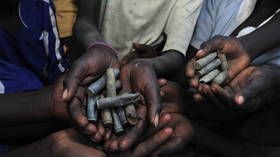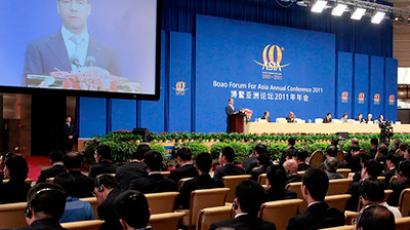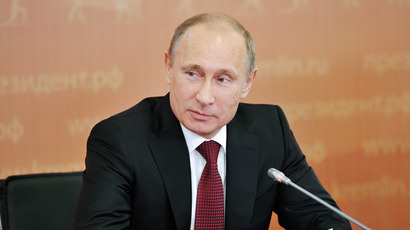Boao Forum: Chinese convention rivals Davos
When people hear ‘economic forum’ the first thing they probably think about is Davos and snowy Alps. But that is set to change as China’s Boao hosts the largest and most representative economic summit in Asia.
The rapid rise of the so-called ‘Asian tigers’ has shifted the focus eastwards, when it comes to world economic development. Initiated by China in 2001, the Boao Forum focuses not only on Asian economic issues, but also address global political and economic problems.
The 12th Boao Forum in 2013 has already proven to be a truly global, not just Asian event, once again bringing the world's attention to the emerging nations' ever growing economic clout.
Heads of state, business leaders and Nobel Prize winners, altogether 1,477 representatives from 43 countries and regions have all gathered in China to discuss pressing global issues.
“This is the largest [economic] forum in Asia,” Ksenia Yudaeva, Russia's representative for G20 summit preparations, told RT. “Here you can see that Asia is the new center of world’s economic growth.”
This year the forum is attracting some big names, like Microsoft's Bill Gates, investor George Soros and head of the IMF Christine Lagarde.
“The vision of that forum is really comparable to Davos in representation of speakers of Europe, the US and Asian countries. I would call it an Asian Davos,” said Yudaeva, who also occupies position of chief of the Presidential Experts' Directorate in Russia.
While Europe and the US are battling economic recession, China’s trade volume is growing steadily. For many countries China has already become the number one trade partner, a place previously occupied by the US. So there is little wonder that world leaders and business gurus from countries affected by the crisis are flocking to China’s tropical Hainan Island for some advice and, hopefully, remedy.
Unlike a BRICS summit, which is “largely a government to government thing,” the Boao Forum serves different purposes, because it “deepens contact between the civil society, business and academics” professor of political studies at the University of Manitoba, Rhadika Desai, told RT.
“One really important thing about this is that they are going to move away from hub-and-spoke relationship that the developing countries once had with the Western world and the advanced industrial countries – and began to create more contacts, investment and trade amongst themselves,” said Desai, who has written extensively on the rise of emerging economies.
The global economic crisis made the Eastern countries realize that “the best way to deal with crisis is to widen your domestic market… to engage it a lot more and make it the driver of growth. This is very important for laying the foundation for sustainable long-term autonomous [economic] growth,” she stressed.
“The old export-led [economic] growth model, which was being followed and prescribed in the pre-crisis era, is basically defunct. It could work as long as the US was able and willing to observe the goods of the Western world, but as we know, it observed it at the cost of giving excessive crediting to the rest of the world,” Desai concluded.
The BRICS countries have recently signed an agreement to trade in their own national currencies, not the US dollar. That move is expected to eventually ditch the American currency. Rumors about China’s yuan becoming one of the world’s reserve currencies have been discussed for quite some time already.
Washington has for years been accusing Beijing of manipulating
the exchange rate of Chinese national currency to gain some trade
advantages. But China rejects all allegations, demonstrating
resilience in diplomacy and independence in economic
decision-making.














